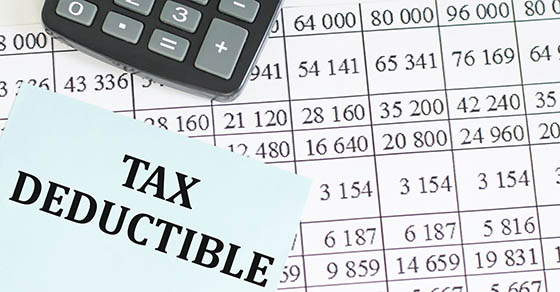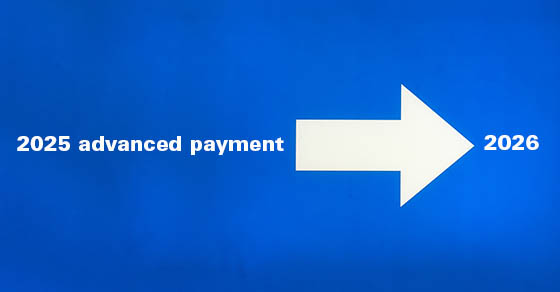If you read the Internal Revenue Code (and you probably don’t want to!), you may be surprised to find that most business deductions aren’t specifically listed. For example, the tax law doesn’t explicitly state that you can deduct office supplies and certain other expenses. Some expenses are detailed in the tax code, but the general rule is contained in the first sentence of Section 162, which states you can write off “all the ordinary and necessary expenses paid or incurred during the taxable year in carrying on any trade or business.”
Basic definitions
In general, an expense is ordinary if it’s considered common or customary in the particular trade or business. For example, insurance premiums to protect a store would be an ordinary business expense in the retail industry.
A necessary expense is defined as one that’s helpful or appropriate. For example, let’s say a car dealership purchases an automated external defibrillator. It may not be necessary for the operation of the business, but it might be helpful and appropriate if an employee or customer suffers cardiac arrest.
It’s possible for an ordinary expense to be unnecessary — but, in order to be deductible, an expense must be ordinary and necessary.
In addition, a deductible amount must be reasonable in relation to the benefit expected. For example, if you’re attempting to land a $3,000 deal, a $65 lunch with a potential client should be OK with the IRS. (Keep in mind that the Tax Cuts and Jobs Act eliminated most deductions for entertainment expenses but retained the 50% deduction for business meals.)
Examples of taxpayers who lost deductions in court
Not surprisingly, the IRS and courts don’t always agree with taxpayers about what qualifies as ordinary and necessary expenditures. Here are three 2023 cases to illustrate some of the issues:
- A married couple owned an engineering firm. For two tax years, they claimed depreciation of $76,264 on three vehicles, but didn’t provide required details including each vehicle’s ownership, cost and useful life. They claimed $34,197 in mileage deductions and provided receipts and mileage logs, but the U.S. Tax Court found they didn’t show any related business purposes. The court also found the mileage claimed included commuting costs, which can’t be written off. The court disallowed these deductions and assessed taxes and penalties. (TC Memo 2023-39)
- The Tax Court ruled that a married couple wasn’t entitled to business tax deductions because the husband’s consulting company failed to show that it was engaged in a trade or business. In fact, invoices produced by the consulting company predated its incorporation. And the court ruled that even if the expenses were legitimate, they weren’t properly substantiated. (TC Memo 2023-80)
- A physician specializing in gene therapy had multiple legal issues and deducted legal expenses of $360,295 for two years on joint Schedule C business tax returns. The Tax Court found that most of the legal fees were to defend the husband against personal conduct issues. The court denied the deduction for personal legal expenses but allowed a deduction for $13,000 for business-related legal expenses. (TC Memo 2023-42)
Proceed with caution
The deductibility of some expenses is clear. But for other expenses, it can get more complicated. Generally, if an expense seems like it’s not normal in your industry — or if it could be considered fun, personal or extravagant in nature — you should proceed with caution. And keep careful records to substantiate the expenses you’re deducting. Consult with us for guidance.
© 2023
Q&A
How do you know if a business expense is considered “ordinary”?
An expense is considered “ordinary” if it is common and accepted in the industry or trade in which the business operates. This means that the expense must be typical and customary for businesses in that particular industry. It should not be excessive or unusual compared to what other businesses in the same industry would typically incur. Determining if an expense is ordinary often requires professional judgment and knowledge of industry standards and practices. In general, expenses that are necessary for the day-to-day operations of a business and directly related to generating revenue are more likely to be considered ordinary. It is important to consult with a professional accountant or tax advisor for specific guidance on classifying expenses as ordinary for your particular business.
How do you know if a business expense is considered “necessary”?
A necessary expense is one that is helpful and appropriate for your business. To determine if a particular expense is necessary, you should consider whether it directly relates to your business operations, contributes to the generation of income, or helps you maintain or improve your business’s efficiency and productivity. It’s important to note that in order for an expense to be deductible, it must be both ordinary and necessary.
When determining whether to deduct an expense for your business, are there any other factors to consider in addition to whether the expense is ordinary and necessary?
When determining whether to deduct an expense for your business, there are a few other factors to consider in addition to whether the expense is ordinary and necessary. These factors include substantiation (having proper documentation to support the business purpose of the expense), reasonableness (in relation to the nature of your business and industry standards, treating excessively lavish expenses with caution and additional consideration), a direct connection to your business activities and income/operations, proportional use (only deducting the portion that is used for business purposes if the expense has both business and personal use), and compliance with tax laws (ensuring that the expense meets all applicable tax laws and regulations, including any specific rules or limitations related to certain types of expenses).






